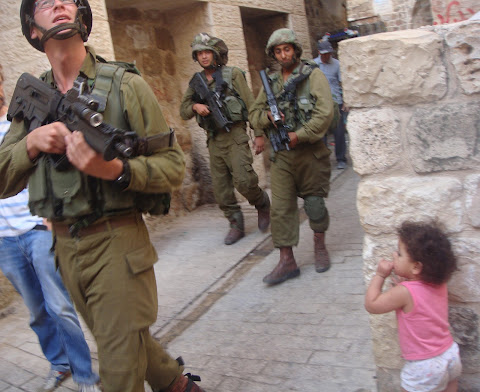Tag: Tear-Gas Canister
-
A day of violence and intimidation in Hebron
By Anna Conroy September 12, 2012 | International Solidarity Movement, West Bank On the morning of September 10 in south west Hebron, at Checkpoint 56, a Palestinian man was shot with live ammunition by the Israeli military. Residents and army officials reported that Molotov cocktails were thrown at the checkpoint, and in response the soldiers…
-
Three injured from tear gas after settlers raid Qusra
By Leila 10 September 2012 | International Solidarity Movement, West Bank Three people were treated for injuries related to tear gas after an attack by illegal settlers in the village of Qusra near Nablus on Saturday night. The attack comes roughly a year after Qusra resident Issam Kamel Odeh, 33, died from Israeli gunfire after…
-
Resistance to Occupation continues in Ni’lin
By Anna 10 September 2012| International Solidarity Movement, West Bank On Friday 7th September five international activists attended the weekly demonstration against the apartheid wall in the village of Ni’lin. Since 2004, the villagers of Ni’lin have been non violently protesting against the annexation of their lands. So far the village has lost over 50,000…

